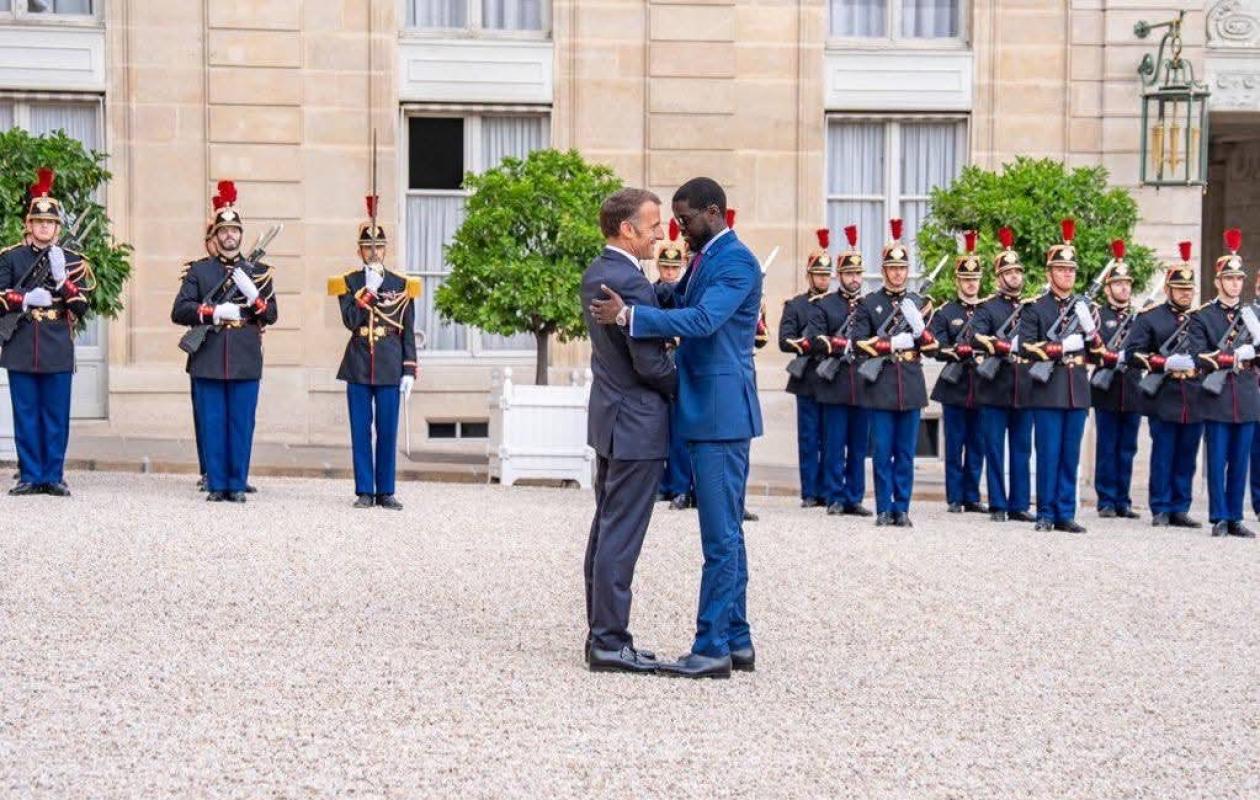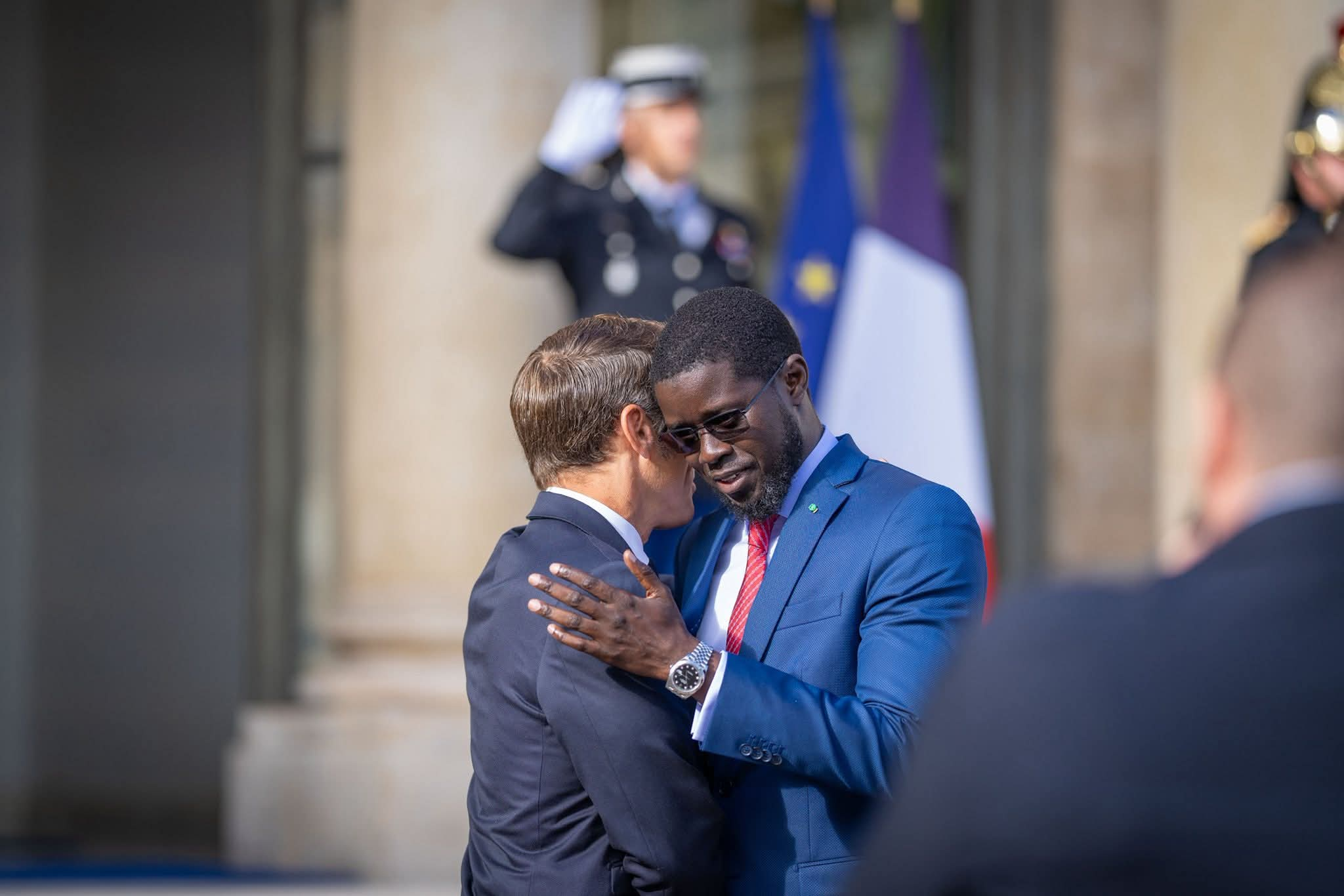
Sénégal-France: ni rupture, ni soumission
They might not be Siamese twins, but Dakar and Paris seem inseparable. History has linked them, and successive Senegalese leaders have strengthened this bond. The whims of activists or campaign slogans change nothing. The relationship between Senegal and France is one of continuities, redefinitions, and compromises.
In a report broadcast Wednesday on RTS, the head of state is seen receiving a delegation of French entrepreneurs who have come to present their projects in the land of Teranga. These images resonate with those of a working breakfast held a few hours earlier at the Élysée Palace with Emmanuel Macron. On the agenda: investments, security cooperation, and defense.
Speaking of defense, let's talk. For several months now, all elements of the French army have left Senegalese territory, in accordance with the wishes expressed by the new authorities. A highly symbolic gesture, hailed by a large segment of public opinion as an affirmation of sovereignty. But it would be misleading to see this as a "France out." Because behind this decision, it's not a break that's looming, but a redefinition of relations.
President Bassirou Diomaye Faye has already met with his French counterpart twice. At least! Away from ideological tensions, the two countries appear united by diplomatic and, above all, economic necessity. Like China, Russia, and the United States, France needs stability in Senegal to remain a credible player in West Africa.
The proof: the Senegalese head of state was a guest of honor at the French Business Movement (Medef). In his speech, delivered symbolically at Roland Garros, he successfully blended historical memory with shared ambitions. Extending the tennis metaphor, he presented the entrepreneurial spirit as a blend of rigor, endurance, and passion, while praising this place "of performance where each match is a test of resilience and self-improvement."

Before an audience of investors, Bassirou Diomaye Faye unveiled the outlines of his "Vision Senegal 2050" program. This strategic plan includes a 2024-2035 master plan and a 2025-2029 five-year plan. The goal: to open up real prospects for public-private partnerships in various sectors—infrastructure, energy, agriculture, digital technology, and education.
Recognizing the importance of the business climate, he announced the revision of three major texts: the Investment Code, the Customs Code, and the General Tax Code. The goal is clear: to reduce taxation, simplify procedures, strengthen predictability, and attract more investment. "Move forward, engage in dialogue, overcome obstacles, and together build the foundations of an innovative and mutually beneficial partnership," he insisted.
Thus, despite radical speeches or posturing for rupture, one thing is clear: the divorce between Dakar and Paris is not imminent. The relationship is changing, sometimes painfully, but it is moving towards a redefined, more balanced cooperation, where Senegal seeks to defend its interests without breaking with its history.
Commentaires (0)
Participer à la Discussion
Règles de la communauté :
💡 Astuce : Utilisez des emojis depuis votre téléphone ou le module emoji ci-dessous. Cliquez sur GIF pour ajouter un GIF animé. Collez un lien X/Twitter ou TikTok pour l'afficher automatiquement.